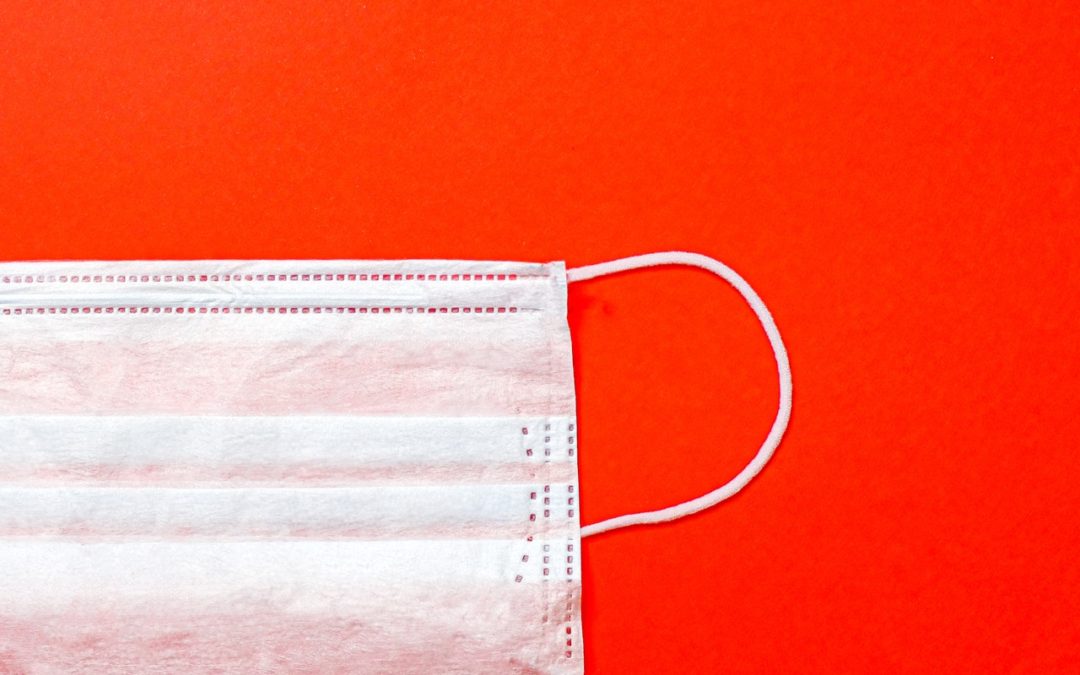Nobody could have imagined 3 months ago that a viral pandemic would be sweeping the world and changing everyone’s lives completely. I had been following the story about a mysterious virus causing pneumonia in Wuhan, China, since it first emerged around Christmas time.
I will leave it to physicians and scientists more specialized in infectious diseases than me, to give detailed explanations about what’s currently happening and how to stop the spread of the virus. Everything of course revolves around societal measures like effective hand washing and social distancing. The elderly and chronically unwell must be extra protected. And the world of healthcare must be prepared like never before, and have adequate resources ready to help those who need it.
I must admit that even a month ago, I wouldn’t have predicted that we would be where we are now. Shortages of essential goods, businesses shutting, school closures—nearing a complete nationwide shutdown and probable economic crash. I did think initially that there was a large component of mass hysteria accompanying the seriousness of the situation. Especially on social media. I still wonder how our response would have been different only 10 years ago, before the age of Facebook and other online media. Having a constant stream of information and news at our fingertips has changed us all in ways that don’t even necessarily register with us individually. Hopefully our hyper-awareness and preparation this time, will save a lot of lives.
Even as a physician keenly following the news and latest research, not all questions have been answered. Here are 3 of my biggest:
1.Could the Coronavirus, COVID-19, have already been spreading like wildfire before every country started to take it seriously?
The initial slow response by authorities in China was widely reported. And if you haven’t seen the diagram about how quickly and exponentially infections spread from one person, to multiple more, click here. The number of coronavirus cases is now rocketing as we test more people, but what are the chances that it was already spreading for the last 3 months in the USA? I have had numerous patients with fevers and respiratory symptoms in the hospital (since recovered)—and also know younger people socially who have been ill for several days since January. These people have all got better, but is it possible that we have had it among us for several weeks longer than we thought?
2.Would a more targeted approach be the way forward over the long-term?
The United Kingdom, where I grew up and went to medical school, has adopted an approach which is unique in the world. They got a team of their own top physicians, scientists, and epidemiologists together—also including people involved in the initial response in China. They used complex computer models to predict likely outbreak patterns and concluded that it was not necessarily the best approach to have a complete lockdown. They worked out the likely peak of infection, and that if it peaked too early, there could be a second bigger surge in the winter. “When you suppress something very hard, it bounces back harder”. The aim is to lower, and broaden, the peak. In the meantime, it would be ideal to develop “herd immunity” amongst younger, healthier people (who more likely will have a very mild or even asymptomatic infection). Sound crazy and risky to effectively let it spread a bit? Yes (you can read about the UK strategy here). This was apparently based on the science that if 60 percent—or 40 million people—in the UK get the infection, herd immunity would have been developed. This theory acknowledges that COVID is not going to go away and will come back in seasonal outbreaks. That is, until there’s a vaccine.
How about the elderly and vulnerable in Britain? The second part of this strategy involves mandating self-isolation for anyone over 70 or chronically unwell. This could be for up to 4 months and will start soon—with special provisions to be made for food delivery, doctor visits, how relatives interact, and nursing homes. “Use a scalpel instead of a sledgehammer”. Realistically, any country can only shut down for so long. What will happen in 2,3,4 weeks? While we must do our best to save lives, isolation and social distancing won’t last forever. Will a more targeted approach eventually be a better one?
3.Can we please talk about how this all started?
Nobody is talking about this, but when it’s all said and done—this must be addressed. Experts believe that this whole thing started in a packed live meat market in Wuhan, China. Anyone who has ever been to a live meat market in certain parts of the world, knows the atrocious and appalling conditions that exist (I once walked near one on my travels, and quickly turned around and walked away horrified). The SARS virus epidemic in 2003 is believed to have started in the same way. Terrible conditions produce terrible disease—that is something we have known since caveman days. Can this please be discussed at some stage.
If any intelligent person has any answers or thoughts on the above, do let me know. And be safe everyone.

Suneel Dhand is a physician, personal trainer, writer and speaker. He is Co-Founder at DocsDox.
Follow me on:
YouTube: Suneel Dhand
Instagram: suneeldhand
Twitter: @DynamicMedicine
Personal Training: Dr Suneel Dhand


Ah Suneel, shades of the 30’s and 40’s! I am old enough to remember epidemics of measles, mumps and chicken pox with no antibiotics available. And in the late 40’s my brother died of polio. So epidemics are nothing new to me. As later research found, both my brother and I probably had the prodromal symptoms of polio at the same time before it doubled back on him and caused his death. It is still a mystery to me. Then as now, parents were very afraid that their children would be exposed; hence and not by my 13 year old choice, I was isolated. Summers were dreaded and iron lungs were part of living.
That being said, there were fewer people in those days, we were more self-reliant on our own – gardens, canning, using less electricity and enjoying the outdoors and books. But we got through it and along came Dr. Salk. History.
I have always believed, perhaps wrongly, that my early exposure to all of these viruses built up my immune system.
One of my big missions in the CCRC in which I live is to bring that message about healthy immune systems to the residents. So little is written other than diet, exercise and rest. What about the evidence or lack of it about the everyday challenges to immune systems? How do we get enough exposure to continue to build that system through our lifetime?
Can you help us with more information about how these bacterial and viral invasions can help us to be healthier?
I don’t have much to add, but just want to express my appreciation for some level-headed words. The media frenzy has made things so much worse. And the gov’t overreaction may have set our country back irreversibly. I don’t think we had to ruin the economy over this. Very interesting how the Brits handled this. I guess we’ll see how well their plan worked.
My guess is that the actual death rate will turn out to be closer to 0.1-0.2% because we have no idea of the number of folks who have already recovered nor the number who are currently carriers. This would put Covid on par with the yearly flu (death rates will probably be less than the flu). Most of the infections appear to be very mild or subclinical. This is not the Black Death!